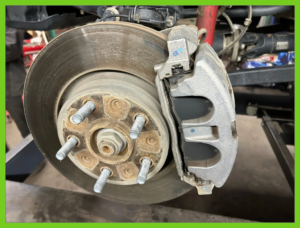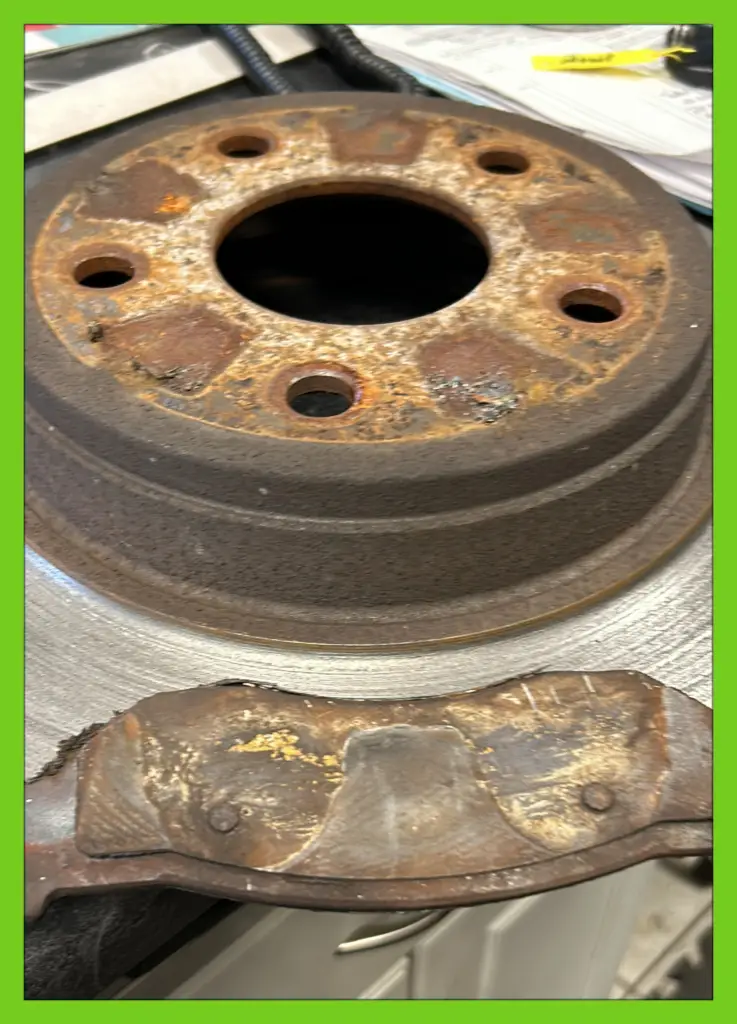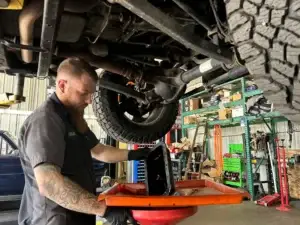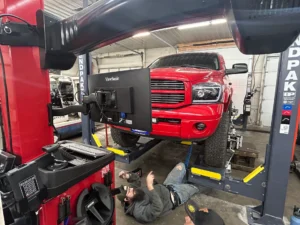Ensuring Safety and Longevity
At TNT Customs Auto Shop, we understand that your vehicle’s brakes are not just a convenience but a critical safety feature. Regular brake maintenance is essential to ensure your vehicle stops safely and reliably. In this blog post, we’ll delve into why brake maintenance matters, how often you should service your brakes, and what signs to watch out for that indicate your brakes may need attention.

Why is Regular Brake Maintenance Important?
Safety First: Your brakes are your vehicle’s primary safety system. Regular maintenance helps ensure they function optimally when you need them most—especially in emergency situations.
Longevity of Components: Routine brake inspections and maintenance can extend the lifespan of your brake components, saving you money on costly repairs down the road.
Performance: Well-maintained brakes provide better stopping power and responsiveness, contributing to overall driving comfort and control.
How Often Should You Service Your Brakes?
General Guidelines: It’s recommended to have your brakes inspected at least once a year or every 12,000 miles. However, this can vary based on your driving habits and the type of vehicle you drive.
Signs That Your Brakes Need Attention:
-
Squealing or Grinding Noises: These can indicate worn brake pads or rotors.
-
Soft Brake Pedal: A soft or spongy brake pedal could mean air in the brake lines or brake fluid leak.
-
Vibrations: Vibrations or pulsations when applying the brakes might indicate warped rotors.
Frequently Asked Questions (FAQs)
Q: How often should I replace my brake pads?
A: Regular brake pad replacement varies depending on driving conditions and manufacturer recommendations. Typically, brake pads should be replaced every 30,000 to 70,000 miles, but it’s best to consult your owner’s manual or a professional technician.
Q: What happens if I don’t maintain my brakes?
A: Neglecting brake maintenance can lead to reduced braking efficiency, increased stopping distances, and potential brake failure. This compromises vehicle safety and may result in costly repairs.
Q: Can I check my brakes myself?
A: While basic visual inspections (checking brake pad thickness, looking for leaks) can be done, a comprehensive brake inspection by a qualified technician ensures all components are functioning correctly and safely.
Conclusion
At TNT Customs Auto Shop, we prioritize your safety and vehicle performance. Regular brake maintenance is a proactive measure that ensures your brakes operate effectively and safely. Don’t wait until you notice signs of brake wear—schedule a brake inspection today and drive with confidence knowing your brakes are in top condition.
For more tips on vehicle maintenance and Jeep customization, stay tuned to our blog or visit us at TNT Customs in Cheyenne. Your journey starts with safe and reliable brakes!




